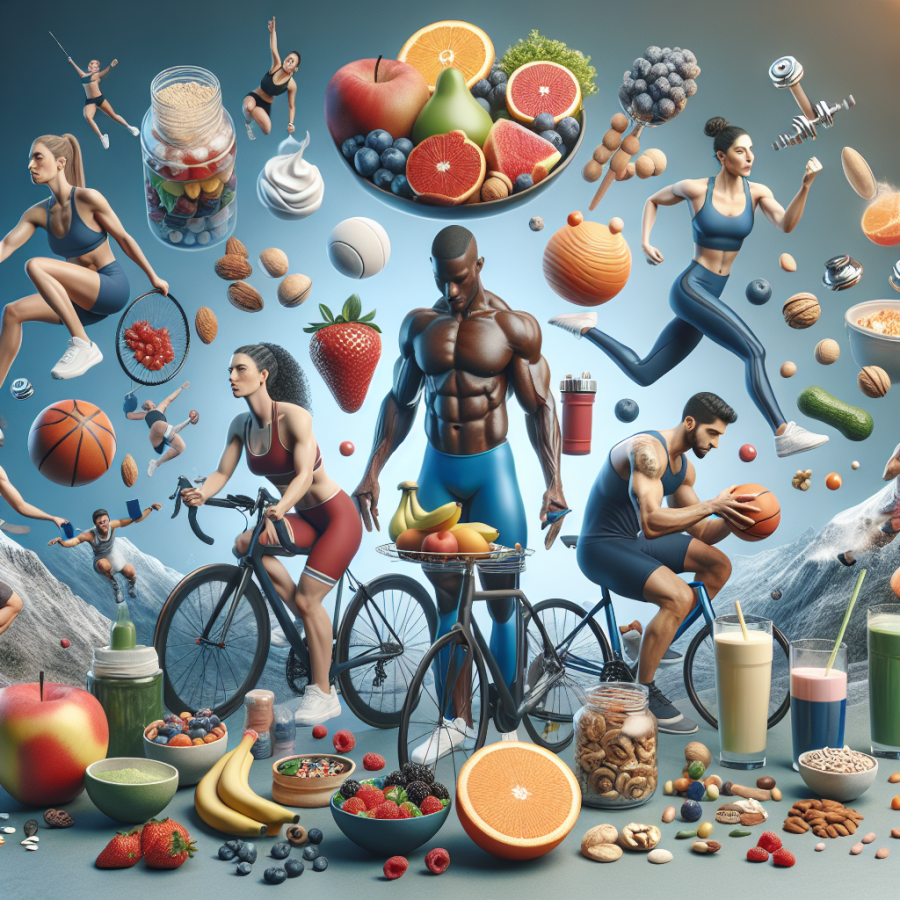Boosting Performance and Recovery: Understanding the Key Elements of Sports Nutrition
Understanding the Key Elements of Sports Nutrition
Enhancing an athlete's performance and recovery status essentially depends on their diet. Studying the key components of sports nutrition can help one identify the types of food and nutrients that can help boost performance and support recovery.
Role of Macronutrients
The core of sports nutrition derives from three central macronutrients - carbohydrates, proteins, and fats. Carbohydrates are the body's primary fuel source, particularly for high-intensity sports. Consistent carbohydrate intake replenishes glycogen stores, which are crucial for an athlete's performance and recovery. Proteins also play a big part in an athlete's diet; they initiate the repair and rebuilding of muscles after training or sports. Lastly, fats - besides providing energy - are vital for the absorption of fat-soluble vitamins like Vitamins A, D, E, and K.
Role of Micronutrients
Micronutrients or vitamins and minerals support almost every cellular process, from energy production to oxygen delivery. Although required in smaller amounts, they are crucial for various functions. For instance, iron assists in transporting oxygen to the exercising muscles, whereas calcium helps in nerve function and muscle contractions.
Hydration and Electrolyte Balance
Surprisingly, even a small amount of dehydration can significantly impair an athlete's performance. Staying well-hydrated is a crucial part of sports nutrition. Additionally, athletes lose sweat during performance, which decreases the body's electrolyte levels. So, replenishing these levels with electrolytes, such as sodium and potassium, is necessary in sports nutrition.
The Timing of Nutrient Intake
The timing of nutrient intake is also a key element in sports nutrition. Consuming certain nutrients at specific times can enhance performance and foster recovery. For instance, regularly consuming carbohydrates and proteins before, during, and after performance can optimize glycogen stores and muscle repair.
Conclusion
Ultimately, the goal of sports nutrition is not solely about improving athletic performance but also about maintaining overall health and wellness. By focusing on these key elements of sports nutrition, athletes can create personalized and strategic dietary strategies that fuel performance and facilitate recovery.
Read also:
Tracing the Origins: Where Does Soccer Really Come From?"
Fueling the Body for Victory: The Role of Sports Nutrition in Athletic Performance
Athletes are always looking for a way to give them an edge over their competition. They will train tirelessly, optimize their techniques, and push their bodies to their limits in the quest for victory. While all these factors are important, one vital aspect of performance often gets overlooked: nutrition. Simply put, athletes cannot function at their peak without consistently consuming the right blend of nutrients.
Sports nutrition provides athletes with the energy they need to perform, assists in the repair and growth of muscle tissue, and helps them maintain a healthy weight. Without optimal nutrition, an athlete may experience fatigue, poor performance, or even injury.
When it comes to fueling the body for victory, the type, amount, and timing of nutrients consumed can make a significant difference to an athlete's performance. Carbohydrates, for instance, are the body's primary source of energy. They are rapidly digested and converted into glucose, which fuels muscles during high-intensity exercise. Therefore, athletes should consume good sources of carbohydrates, such as whole grains, before a competition.
Protein is another crucial nutrient for athletes as it aids in muscle recovery and growth. After a strenuous workout, muscles are often damaged which protein, particularly the amino acids present within it, can help to repair. Lean meats, dairy products, and plant-based proteins like lentils and quinoa are all excellent sources of protein.
Additionally, fats should not be neglected, contrary to popular belief. As a concentrated source of energy, fats can provide long-lasting fuel for endurance athletes. Healthy fats from avocados, nuts, seeds, and fish can support energy needs and boost overall health.
Hydration, while not a nutrient, is an integral part of sports nutrition. Dehydration can lead to decreased performance, muscle cramps, and other health issues. Drinking plenty of water and consuming electrolytes during prolonged exercise can help to maintain hydration levels.
Moreover, nutrition during recovery is just as critical as prior and during an event. Consuming protein and carbohydrates within 30 minutes after exercise can help replenish energy stores, repair muscle tissue, and reduce fatigue.
Sports supplements can also be valuable tools for athletes. They can provide nutrients that may be difficult to consume in adequate amounts through food alone, support performance, and enhance recovery. However, they should be carefully researched and used judiciously, under the guidance of a qualified sports nutritionist or dietitian.
Proper nutrition plays a pivotal role in athletic performance.




